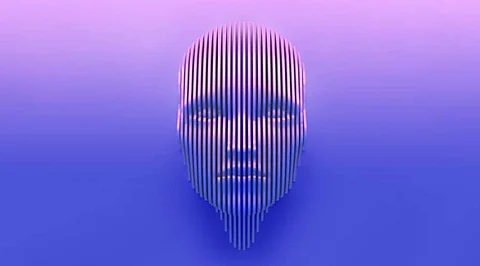

An artificial intelligence service uninhibitedly accessible on the Web has been utilized to transform more than 100,000 women's pictures into naked photographs without the women's knowledge or consent, setting off feelings of dread of another influx of harming "deepfakes" that could be utilized for harassment or blackmail.
Users of the automated service can anonymously present a photograph of a dressed woman and get a modified version with the garments removed. The AI innovation, trained on huge databases of actual nude photographs, can create fakes with apparently similar precision, coordinating skin tone and swapping in breasts and genitalia where clothes once were.
In June of 2019, Vice revealed the presence of a disturbing application that used AI to "undress" women. Called DeepNude, it permitted clients to upload a photograph of a dressed lady for $50 and get back a photograph of her seemingly naked. In fact, the product was utilizing generative adversarial networks, the algorithm behind deepfakes, to swap the women's clothes for exceptionally realistic nude bodies. The more insufficiently clad the person is the victim, the better. It didn't take a shot at men.
Within 24 hours, the Vice article had propelled such a backlash that the makers of the application immediately brought it down. The DeepNude Twitter account declared that no different versions would be delivered, and nobody else would gain access to the innovation.
Sensity is an intelligence company that tracks and uncovers deepfakes and different types of "malicious visual media," as indicated by its site. In a 12-page report distributed for the current month, the organization illustrated how another "deepfake ecosystem" developed on Telegram dependent on an "AI-powered bot that permits clients to photo-realistically 'strip naked' clothed images of women."
The bot is free to use on cell phones and computers and is effectively available by means of Telegram, a texting application created in 2013 that guarantees secure messaging utilizing end-to-end encryption. Telegram is banned in Russia, China and Iran.
"Having a social media account with public photographs is sufficient for anybody to turn into a target," Giorgio Patrini, CEO and chief scientist at Sensity, told the BBC.
The chatbot and a few other partnered channels have been utilized by more than 100,000 individuals around the world, the researchers found. In an internal survey, the bot's users said approximately 63% of the individuals they needed to undress were girls or women they knew from real life.
Starting in July 2020, the bot had already been utilized to target and "strip" at least 100,000 ladies, most of whom probably had no clue. "Normally it's young girls," says Giorgio Patrini, the CEO and chief scientist of Sensity, who co-authored the report. "Sadly, some of the time it's additionally very clear that some of these people are underage."
The bot was built on an open-source "image-to-image translation" software, known as pix2pix, first launched in 2018 by AI researchers at the University of California at Berkeley. By feeding the system an enormous amount of real pictures, it can perceive visual patterns and, thus, make its own fakes, changing photographs of scenes from daytime to night, or into full tone from black-and-white.
The software depends on an AI advancement known as generative adversarial networks, or GANs, that gained popularity recently for its capacity to deal with hills of data and create lifelike videos, images and passages of text.
The deep learning pioneer Andrew Ng a year ago called DeepNude "one of the most disgusting applications of AI" including: "To the AI Community: You have superpowers, and what you construct matters. Please use your powers on worthy projects that move the world forward."
Abusers have been utilizing pornographic imagery to harass women for quite a while. In 2019, an examination from the American Psychological Association found that one out of 12 women winds up being victims of revenge porn eventually in their life. A study from the Australian government, taking a look at Australia, the UK, and New Zealand, discovered that proportion to be as high as one in every three. Deepfake revenge pornography adds a totally different dimension to the provocation, in light of the fact that the victims don't understand such pictures exist.
There are additionally numerous cases in which deepfakes have been utilized to target celebrities and other high-profile people. The innovation initially became well-known in the deep recesses of the internet as an approach to face-swap celebrities into porn videos, and it's been utilized as a part of harassment campaigns to silence female journalists. Patrini says he's spoken with influencers and YouTubers, also, who've had deepfaked explicit pictures of them sent directly to their supporters, costing them immense financial and emotional strain.
Join our WhatsApp Channel to get the latest news, exclusives and videos on WhatsApp
_____________
Disclaimer: Analytics Insight does not provide financial advice or guidance. Also note that the cryptocurrencies mentioned/listed on the website could potentially be scams, i.e. designed to induce you to invest financial resources that may be lost forever and not be recoverable once investments are made. You are responsible for conducting your own research (DYOR) before making any investments. Read more here.
